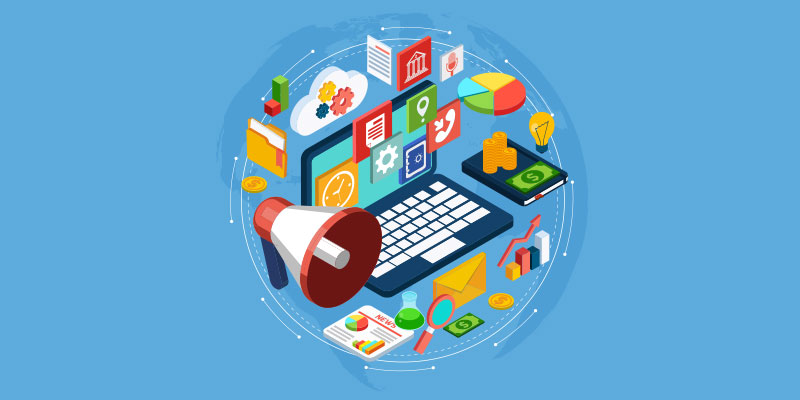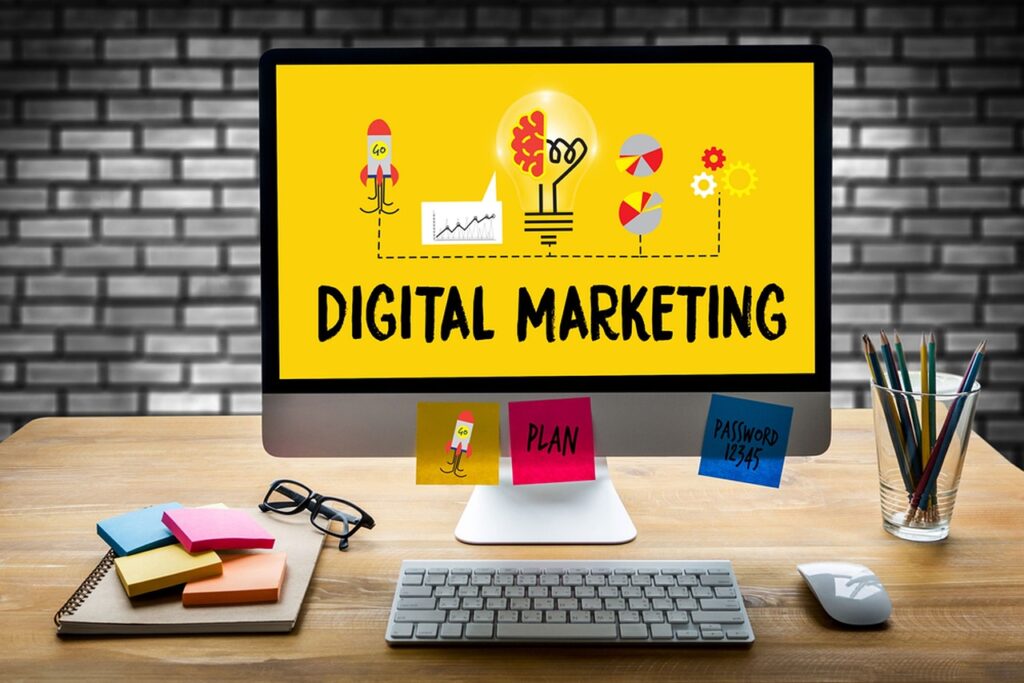Digital marketing has taken centre stage, revolutionising the way businesses connect with their audiences and driving unprecedented growth and success. In the present day, traditional advertising methods like
billboards, print media, and TV commercials simply can’t match the power of digital marketing.
What is Digital Marketing?
Digital marketing revolves around leveraging electronic devices and the internet for strategic marketing purposes. It includes various online channels, platforms, and techniques to promote products, services, and brands. Unlike traditional marketing, digital marketing allows businesses to instantly connect with a global audience and engage with potential customers in real time.
Also known as online marketing, promotes brands and connects them to potential customers via the Internet. It takes many forms, including:
•Search engines
•Websites
•Social media
•Mobile apps
•Text messaging
•Web-based advertising
Key Components :
Content Marketing: Content marketing is a marketing strategy used to attract, engage, and retain an audience by creating and sharing relevant articles, videos, podcasts, and other media.
Search Engine Optimization (SEO): SEO is the process of optimizing a website to enhance its visibility on search engine results pages. This is achieved through the strategic utilization of pertinent keywords, the creation of high-quality content, and the establishment of valuable backlinks, thereby enabling businesses to elevate their organic search rankings and attract a broader audience of potential customers.
Social Media Marketing: Social media has evolved into a potent tool for businesses to engage with their audience directly. Platforms such as Facebook, Instagram, Twitter, LinkedIn, and TikTok enable companies to foster brand awareness, interact with customers, and channel traffic to their websites.
Data Analytics and Tracking: By understanding user behaviour, businesses can refine their marketing strategies, optimise campaigns, and enhance overall performance.
Email Marketing: This is one of the oldest and most useful forms of digital marketing. Email marketing is a marketing strategy where businesses send promotional messages to people in mass quantities.
Pay-Per-Click Advertising (PPC): PPC advertising is about placing ads on search engines and social media. Businesses pay a fee when users click on the ads. It’s a quick way to get traffic and conversions, especially for new businesses or time-sensitive campaigns.
The advantages of this field include Global reach; Cost effectiveness; personalization; real-time engagements and data-driven decision-making.

Benefits:
One of the primary benefits of digital marketing is its capacity to reach a broader online audience and enhance visibility significantly Through targeted advertising, businesses can effectively reach their intended audience and achieve higher returns on investment.
It proves to be cost-effective when compared to traditional marketing methods, allowing businesses to allocate budgets more efficiently and optimise their campaigns. Furthermore, its beauty lies in the capability to deliver measurable results, enabling businesses to track the success of their efforts and make decisions based on data.
One of the noteworthy advantages of digital marketing is its provision of access to global markets. Harnessing the power of the internet, businesses can extend their reach beyond geographical boundaries, creating new avenues for growth and expansion.
Consequently, digital marketing has demonstrated its ability to enhance conversion rates, effectively turning more leads into customers and ultimately bolstering revenue.

